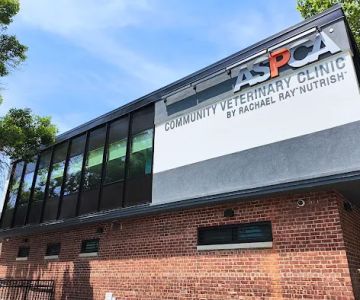Do You Qualify for Free Veterinary Services?
As pet owners, we want the best for our animals. Whether it's routine check-ups, vaccinations, or emergency care, keeping our pets healthy can be expensive. I’ve found that many pet owners, like myself, often wonder, "Do I qualify for free veterinary services?" It's a common question, especially when facing financial difficulties. Fortunately, there are options for those in need of affordable veterinary care. In this article, I’ll share the different ways you may qualify for free or discounted veterinary services and how to navigate the system.
1. Understanding the Need for Free Veterinary Care
Veterinary care is crucial for ensuring our pets live long and healthy lives, but the costs can quickly add up. From vaccinations to surgeries, the price of keeping a pet healthy is often a burden for families struggling financially. In fact, studies show that one of the main reasons pets go without necessary veterinary care is due to cost concerns. This has led to an increasing demand for free or low-cost veterinary services. Thankfully, many organizations, local animal shelters, and even government programs are working to bridge this gap.
It’s essential to understand that while free veterinary services are available, they are often limited in scope and availability. They might be provided through nonprofit organizations, animal clinics, or government assistance programs designed to help those in need. These services can include preventive care, emergency services, and basic treatments. But how do you know if you qualify? Let’s break it down further.
2. Key Requirements for Free Veterinary Services
Generally, qualifying for free veterinary care depends on your financial situation, the nature of your pet’s health needs, and the resources available in your area. The key factors to consider when applying for free veterinary care include:
- Income Level: Most free or discounted veterinary programs are intended for individuals with low income. If you qualify for government assistance programs like food stamps (SNAP), Medicaid, or Supplemental Security Income (SSI), you may be eligible for discounted or free services.
- Location: The availability of free veterinary services often depends on where you live. Larger cities or areas with higher populations tend to have more resources, such as nonprofit veterinary clinics or charity-based programs that offer free services.
- Type of Care Needed: Some programs may offer free or discounted services for specific types of care, such as spaying or neutering, vaccinations, or emergency care. However, more extensive treatments like surgery or chronic care may require payment, even through low-cost clinics.
3. Nonprofit Organizations Offering Free or Discounted Veterinary Care
One of the best places to start when looking for free veterinary services is with nonprofit organizations. Many animal welfare organizations provide free or low-cost services to pet owners in need. These organizations understand the importance of accessible veterinary care for pets and aim to remove the financial barrier that prevents many families from seeking help. Some popular nonprofit organizations that may offer free veterinary services include:
- The Humane Society of the United States: This organization often partners with local clinics to provide discounted services and, in some cases, free veterinary care for eligible individuals.
- RedRover: RedRover offers emergency financial assistance for pet owners who need help with urgent medical care, including vet bills for injured pets.
- Local Animal Shelters: Many local animal shelters and rescue organizations run low-cost or free vet clinics, especially for spaying and neutering services, vaccinations, and emergency care.
It’s important to contact these organizations directly to find out about specific eligibility criteria and the types of care they offer. Some may even provide mobile vet clinics that bring the services directly to underserved communities.
4. Government Programs That Help with Veterinary Costs
In some cases, local and state governments provide assistance to pet owners in the form of free or subsidized veterinary services. While these programs are not as widespread as nonprofit services, there are several options to consider:
- Veterans Affairs (VA): Veterans with service-connected disabilities may be eligible for free veterinary care for their pets through the VA. This can include treatment for conditions related to the veteran’s service.
- Public Health Assistance Programs: Some states have public health programs that offer low-cost or free vet services for low-income individuals, particularly for preventive care.
- Animal Control Services: In some areas, animal control agencies provide assistance to pet owners who cannot afford necessary vaccinations or spaying/neutering services.
These programs often have strict eligibility guidelines, and the availability of services may vary depending on your location. It’s a good idea to contact your local government or health department for more information on available resources in your area.
5. How to Find Free Veterinary Services in Your Area
If you’re wondering how to find free veterinary services near you, there are a few strategies to consider:
- Search Online: Websites like Petfinder, the Humane Society, and local animal welfare organizations often list resources for free or low-cost veterinary care in your area.
- Ask Local Animal Shelters: Reach out to local shelters and ask about any upcoming free or low-cost clinics they may be hosting. Shelters are often aware of the best resources available in your community.
- Community Forums and Social Media: Online community forums and Facebook groups focused on pet care can be valuable resources for learning about free or discounted veterinary services offered by local groups or organizations.
6. Additional Tips for Saving on Veterinary Care
While free veterinary services may be hard to come by, there are still several ways to save on your pet’s medical care:
- Look for Discount Programs: Some veterinary offices offer discount programs for regular customers or low-income families. These programs may help reduce the cost of regular check-ups, vaccinations, and even some emergency care.
- Pet Insurance: If you’re worried about future veterinary costs, pet insurance can provide coverage for many types of care. Be sure to shop around for the best plan that fits your budget and your pet’s needs.
- Preventive Care: Preventive care, such as regular check-ups, vaccinations, and dental care, can help reduce the risk of more expensive treatments down the road.
Taking a proactive approach to your pet’s health can help prevent costly emergencies in the future, and there are many affordable options available for those in need.











